#stressful situations
Text
Wow Birthday Whump Day 14: Guilt / Chased / "I bought you time, use it!"
A small sad. Get out your tissues
Content: angst, stress, future character death, mentioned blackmail
Joseph’s mouth is wide open, staring at the orders in front of him. The rest of Turquoise is with him, standing in shock. Still, it’s happening, undeniably so, and it’s like being gutted. Martin clears his throat, but Joseph gets there first.
“She’s on medical leave. You can’t do this,” he points a finger at Rudick accusingly, stepping forward. “Ma’am.”
This is his fault, and he feels it deep inside his gut. He’s the one who pushed for her to join, the one who encouraged this, the one who led her down this path, like a lamb to slaughter. He should be crying, but he only feels pure, unadulterated rage. They will not do this to her. He won’t let them.
Martin tries to speak again, but it's Henle’s turn. “I dearly hope you can tell us what the fuck you were thinking, Niki.” Their arms are crossed tightly over their chest, eyes staring daggers into her. The fact that he’s missing the “ma’am” makes everyone deeply uncomfortable.
This time, Martin is quiet, his facial expression doing all of the work for him. The rest of his team is behind him, making the exact same face. She takes a step back. “It wasn’t my decision. Command made it over my advice.”
Henle twists their head. “Did they make it over mine, too? Because I was pretty damn clear about what was going to happen if they kept her in the field.”
“They deemed it a ‘necessary risk.’” Rudick looks down, tablet held close to her chest. “It’s a bullshit excuse, I know.”
“It’s more than bullshit.” Joseph practically snarls, though he keeps it under his breath.
She steps closer, right into the angry lled aura around the team. “I’ve contested it. They’re calling an HCC meeting in a week. I can’t have my ngerprints on this-” her voice is dangerously low, “-but nd your pressure points. From what I’ve heard, not everyone has decided.” The shame is evident in her body as he walks towards the door. “I’ve bought you time. Use it.”
Taglist: @pigeonwhumps@rainydaywhump@painful-pooch@rainbowsandwhumperflies@snaillamp @whumperofworlds
#worlds babbles#whump#wow birthday whump#wow birthday whump day 14#guilt#emotional whump#angst#stressful situations
11 notes
·
View notes
Text
FIRST FOOTBALL GAME THURSDAY- DONT KNOW SHIT! I HAVE NOT LEARNED A SINGLE ROUTINE AND SINCE WERE DOING A TAYLOR SWIFT HALFTIME SHOW WE NEED 3 NEW ROUTINES THAT WE DONT HAVE! WHAT THE HELL- I DONT EVEN HAVE MY FLAG! OR GAMEDAY SILKS! OR A UNIFORM!
5 notes
·
View notes
Text
So I just came across this video for the first time and I wanted to say something about it —as in, I feel compelled. It was captioned with the sentence “this is the perfect response to a 4-year-old who thinks she’s ugly.” The video I’ve linked of the scenario is a little longer and is outlined fully below. It is captioned “Little Girl Says She is Ugly And is Quickly Corrected.” I’ll let you draw your own conclusions when I’ve said my piece.
The woman in this video seems to be a very loving woman who has deep and loving concerns for the child involved. I’m going to let you know what I think about how she tried to help.
Let’s take it apart piece by piece:
Hairdresser (family friend): For real, like I’m not even playing with you. You won’t even like it.
Child: I’m so ugly.
—let’s take a moment and look at the situation. The little girl seems to be looking towards the camera, possibly at a reflection or image of herself. She seems upset. Children tend to use big language, even when describing small situations of inconvenience, because they have a limited vocabulary. It is completely possible that this child does not like how her hair looks, either because it’s not finished yet or because she has decided she does not want this particular look or because she did not know how to ask for the look she actually wanted and feels that her desires were misinterpreted. It’s also possible that she feels ugly for an unrelated reason.
H: *gasps, seemingly horrified and shocked*
C: What?
—the child is obviously surprised. She was not particularly upset when she described that she felt ugly. It seems she felt she was stating a fact that carried no devastating emotional value. She does not understand why the adult is distressed.
H: Don’t say that! Don’t say that —Don’t say that. You are so pretty.
—the child seems confused, not by the words, but by the response. The adult here is employing what I call “shut down language.” She is denying the little girl’s feelings because the girl used a statement (“I’m so ugly”) that made the adult uncomfortable. The adult’s knee-jerk reaction suggests that she is insecure about this phrase and about hearing it from a child. Rather than exploring what the child feels and why she called herself ugly, the adult has chosen to deny the child’s feelings. Denying a child’s feelings is a big no-no in conversation. It discourages a child from trusting you with their emotional honesty, and it discourages them from exploring their own feelings. You have made them feel as though they have done something wrong by expressing an emotion or stating a ‘fact’. In turn, the adult escalates the situation by making it about their own distress rather than listening to the child and getting to the heart of the problem.
H: You— When you look at yourself you’re supposed to say “I am so pretty.” You are so pretty.
—here the child begins to look ashamed. She was not expressing negative emotion before. Just confusion. Now she is being made to feel as though she has done something wrong. She looks away from the woman and at the floor. The woman in question is now giving her more orders. Now the girl is being told that she is not allowed to express negative emotions about herself or feel bad about her appearance. She is only allowed to call herself pretty, even when she does not feel pretty. The adult keeps using the word ‘pretty,’ but she is not describing what she means. Children appreciate specific information. Instead this woman is repeating the phrase as though it were a condemnation on the child. Her tone suggests that the child has done something wrong.
H: Do you hear me?
—the woman grabs the face of the child and forces her to look up. She has not allowed the child to speak. She continues to escalate the situation. Her actions suggest that this child is not allowed to express any type of autonomy in an emotional situation—emotional or physical. This woman seems to be acting out of kind-hearted desperation. She does not understand how to step back.
H: You got the prettiest little dimples. You are too cute. Aww…
C: *begins to cry*
—Now the child starts to cry. Do you see how the adult has escalated the situation? What could have been an easy moment of ‘You feel ugly? Tell me about that.’ And ‘your hair? I understand. It can be really hard to feel beautiful when your hair is only partially finished. Let me show you some pictures so you know what it’ll look like when we’re done. If you still don’t like it, then next time we can try something different’ suddenly turns into a complicated situation and a child in tears. A child who was not distressed before suddenly becomes deeply confused, unexpectedly ashamed, and emotionally distressed because the adult in the room didn’t bother asking her a few questions and letting her speak. Just look at how little the child has spoken in this interaction.
H: Aryionna, oh you gon’ make me cry.
C: *cries harder*
—now the child is being told that she is responsible for this woman’s emotional distress —that if she expresses ‘negative’ emotions openly, it is going to have a negative impact on the people around her —that she is responsible for keeping her composure, or else she is going to hurt people —that she is doing something wrong by expressing distress over a situation that this woman escalated
H: You’re not ugly. Baby girl. Oh my God, Aryionna. You’re not ugly. Baby girl.
—a repetition of emotional denial and escalation, stated in a voice that is distressed and accusatory
H: You are so pretty. You look like you have this beautiful chocolaty skin, like you are just so gorgeous. You’ve got these dimples. Remember what I told you? How many people got two dimples? Nobody.
—finally we are being specific. We are identifying specific traits that a child can observe and relate to in order to help her understand what is meant by ‘pretty.’ This is positive, because it grounds the child in the conversation. The issue is that we still don’t understand exactly why the child called herself ugly, therefore the added information may only cause more distress, because all of a sudden we’re bringing up new topics that the child might not have considered without allowing the child to address the old topic. Now we’re telling the child to split her attention between processing the old information and the new, as well as escalating her emotional distress without allowing her to speak. Specifics are very positive for a child, but only when she has the chance to process them properly.
H:You got two, let me see you smile! Let me see, let me see. You got two dimples! I don’t even have two dimples! Girl, let me see your teeth. Look at them pretty white teeth.
—now a child who has been carried into emotional distress is being told by the perpetrator that she needs to smile. Have you ever been told to smile by someone when you’re in emotional distress? Because I have. It doesn’t go over well. It sends the message ‘this person has no interest in my actual emotions. They don’t want to help me process anything. They don’t want to listen to me. They don’t want to deal with me. They want the instant gratification of seeing me smile because if they can control my outward appearance and make me look happy, they no longer feel obligated to worry whether I actually am happy.’ Never tell another person to smile when they are in emotional distress. You are making the situation about you rather than attending to their needs. Even children can understand this. Emotionally, they are hurt from being told to smile, even if they don’t know the words yet to describe exactly what they’re feeling and why. I can tell you, at this moment this child is likely feeling uglier and less loved than she was at the beginning of the conversation. The adult here is trying very hard to fix the situation, but she is making it more about her than she is about the child. She feels a need to control and fix rather than to trust and listen. Emotional conversations require mutual respect. That means trusting a child to emotionally sort through something without you giving them orders.
H: No, you’re not gon’ cry.
—now the child is being told that she is not allowed to cry. She has been led to believe that referring to herself as ugly is shameful wrongdoing that leads to tears. She has been told that she is not allowed to feel negatively about her appearance. She has been told that she is required to feel beautiful. She has been told that any other feeling is invalid. She has been told that she is responsible for managing her emotions so that other people do not feel distressed as well. She has been told she needs to smile. And now she is being told that she is not allowed to cry. She needs to bottle up her emotions in order to make the people around her feel good.
H: You are a beautiful little girl. And you are pretty. You are the prettiest girl in your class. *grabs the child’s face and turns her back so the two of them are face-to-face in close quarters, even though the child is showing signs of discomfort by turning away* Boom. Tell them straight up, when you go to school tomorrow, you’ve got your hair done, you’re gonna be like, oh look at my hair. Oh, look at my shoes. Look at my clothes. Baby girl, you are beautiful. Black is beautiful, and if nobody ever tell you, I will tell you, you are gorgeous. You are so pretty.
—so now this child is being told to compare herself to the other children in her class. What if she doesn’t feel as pretty as another girl? But she’s been told that being the prettiest is what matters. She is being told to brag about her appearance rather than investigating her internal, emotional life. She is being told that her happiness hinges on beauty and that her beauty hinges on comparison to others.
H: And you are gonna grow up, and you’re gonna be everything that you can be. You are gonna be the greatest nail tech, the greatest beautician, the greatest lawyer, the greatest doctor, the greatest teacher, whatever you wanna be. The greatest speaker, the greatest entrepreneur.
—if you tell a child they are going to be the best, but you do not give them the tools to emotionally develop, you are setting them up for failure, or at least for a very stressful and possibly lonely life. It is better to offer an open ear and a willingness to help than to put pressure on a child to be the best. This child has already been told that she’s expected to remain beautiful. Now she’s being told that she’s also expected to be successful. Not to mention, the adult in this conversation is piling on topics. This is a lot to process for a little girl without letting her actually talk through it all. And we still haven’t gotten to the heart of what actually made her feel ugly. What a horrible rollercoaster ride of emotions being thrown at a child that has been rendered too emotional to properly speak about them.
H: Whatev- What you want to be? What you wanna be when you get older?
C: *draws her hands up to her face* Uhh, the teacher.
H: You want to be, uh *pulls child’s hands down* Your teacher mean to you?
C: *nods*
H: *still holding onto child’s arms, gesturing with them* So guess what, when you become a teacher, you don’t be mean. *drops arms* *points at child’s chest* You be a nice teacher. You be- You going to be Miss- Miss Cotton. That’s what they going to call you. Miss Cotton.
—so finally the child is given a chance to speak, but the adult still fights to maintain control. She holds the little girl’s arms and moves them around. She tells the little girl what type of teacher she’s going to be. She doesn’t ask the child about it and let her speak.
H: You gotta be happy *touches child’s face where her dimples would be if she were smiling* all the time because you’re a little kid. You only four, and you should not know nothing about being ugly, because you are so beautiful.
—look, I understand what she’s saying here. She’s saying that it’s an injustice for a small child to have to endure pain and suffering. But that’s not how she’s saying it. She’s giving this information to this child as an order. All of a sudden, this little girl is being told that she’s only ever allowed to be happy. The gestures imply that happiness is signified by an outward smile rather than an internal feeling. This child is being told that she’s not allowed to know how it feels to be ugly. She’s being told that beautiful people are not allowed to express emotion because they are beautiful. She is being told that this is a good thing, and that she has no say. That is not comforting. That is extremely distressing to a small child. Children don’t process logic the same way that grown ups do. The most developed part of a child’s brain is the part that processes emotions. That’s how children make decisions. This woman is telling a small child that this child is not allowed to use the most developed part of her brain — the part that needs to grow and develop in a healthy way in order for this child to live a healthy life.
H: You hold your head up *holds the child’s cheeks between her open hands and points it upward and holds it there* You hold your head up. Okay?
—the adult is still taking full control. Her words are spoken in a demanding tone. She is not asking the child what she wants. She is not even allowing the child to hold up her own head.
H: Okay?
C: *nods*
H: can I have a hug?
C: *moves in for a hug, head angled down*
—this child is obviously still upset. More upset than she was at the beginning of this conversation
H: I love you. You are so pretty. . . . And you got a beautiful heart, and you just have some good manners.
—love is tied once again directly to beauty by verbal proximity. The beautiful heart is listed almost as an afterthought. It is being mentioned for the first time in the conversation.
H: Come on, let’s finish your hair girl.
C: No, I don’t wanna finish my hair.
—this child is expressing a concrete feeling for the first time since the beginning of the conversation. It is quite possible that her feeling of ugliness had something to do with her hair. She is trying to express a truth, which she hasn’t been allowed to properly do for this entire conversation.
H: Come on, we ain’t got no choice. We ready to get out of this chair. Come on.
—the child is told that she has no choice. That someone else is making a decision for her. That she is not allowed to express her frustration, even though the adult is allowed to escalate the situation and express her own feelings of distress.
H: Girl, you just almost made me cry, no lie. Uh-uhhh.
—the video ends with the adult holding the little girl responsible, once again, for her distress and her lack of emotional regulation.
This is not how you teach a child to love herself or to feel beautiful or to regulate emotions. This is how you teach a child to believe that adults don’t care, children aren’t allowed to express thoughts and feelings, and the voices and feelings of children don’t matter. This woman very obviously loves this child and wants to help, but even loving people can royally screw up a child by not listening and by escalating emotional distress. Nearly everything said here was emotionally damaging, not matter the motivation.
I encourage anyone who struggles in conversation — whether with children or with adults — to read How to Talk So Kids Will Listen and Listen So Kids Will Talk by Adele Faber and Elaine Mazlish. It’s not a perfect book, but it has a wealth of great principles for communicating with children that also extend to adult conversation. It’s a great help when you’re at a loss of what to say in potentially emotional conversations like these, but also in every day conversations. It does a great job of teaching how to help kids problem solve and personally develop and how to lessen the stress of engaging with another person. It helps us to translate our good motives into the proper methods so that we don’t hurt other people with shut down language and an instinctual need to maintain control or to seek instant gratification by forcing kids / other people to feel what we want them to feel.
#How to talk so kids will listen and listen so kids will talk#Adele faber#Elaine mazlish#good parenting#bad parenting#emotions#stressful situations#emotional escalation#unnecessary emotional escalation#let kids speak#let kids talk#let kids emotionally process#processing negative emotions#it’s not a bad thing#let kids feel#this is not a positive video#no matter how much this woman seems to mean well#so why is it being passed off as an example of good parenting#and positive reinforcement#this is a great way to make sure your kids never trust you#with emotional honesty#you can be a good person and still do horrible emotional damage to a child
2 notes
·
View notes
Link
The ability to pay attention, remember what you read, and stay calm in stressful situations are all facets of cognitive functioning. Focus is the ability to direct your attention. Memory is the brain's ability to store information. Mood is how you feel at any given time. When you have good focus and good memory, you are able to concentrate on what you are doing. If you don't have a good mood, it will be hard for you to do anything productive or enjoyable. There are many things that can affect your focus and memory levels. Make sure that these factors are not affecting the concentration levels by changing diet, exercising regularly, sleeping well, reducing stress levels, and having regular check-ups with a doctor. These factors will help increase the concentration level as well as improve memory levels.
2 notes
·
View notes
Text
people when trauma victims act traumatized especially in a way that is unpalatable to them because it involves lashing out and unpredictable moods and having boundary issues rather than just being demure, sad, and consumable

#the surprise at unpredictability is always so fucking baffling to me. this is someone who’s been under extreme stress/duress#for ages. Do you think you can just bounce back. regulate everything immediately. when you’ve been in Survival Mode your whole#fucking life. LOL#you don’t just fucking Know how to be a human being. magically. because you’re out of the situation now. like.
33K notes
·
View notes
Text
seriously have been thinking about this all night long. call me autistic but the fact that 90% of workplaces the point is not to get your work done and then be done doing it but to instead perform an elaborate social dance in which you find something to do even when you're done doing everything you need to do in order to show your fellow workers that you, too, are Working . because you are at Work . disgusting why cant we all agree that if there is no work immediately to be done. we just dont do anything
#i personally like to not be doing things constantly at all times. it stresses me out#i know there are ppl who thrive on cosntant activity#but me i like to chill out.#and the problem then becomes that i only ACTIVELY remember to do work and Find More Work To Do when im stressed#at the thought that others might want to see me working#if im ever relaxed i just dont look for stuff to do#catch 22 of modern work culture which permeates even ostensibly noncapitalist structures like public libraries#for instance: will it really kill anybody if the books get shelved by me now after a very busy day?#or shelved tomorrow morning by. well probably me since i'll be the one at the desk#not in the slightest#but it was work that wasnt being immediately done by me. therefore it was incorrect behavior#that i failed to identify because my instinct is to relax when not immediately presented with a Situation#this got me labeled as 'having no initiative' by my dad from a very early age#and even as an adult i still feel like im a child with no initiative
61K notes
·
View notes
Text
Stress is a normal part of life. Whether we like it or not, there is nothing we can do about it. In reality, we experience being stressed on a regular basis. This holds true for people of all ages. We all encounter stressful situations every once in a while. Some of these don’t seem to affect our lives directly. However, there are also instances wherein stress takes a toll on our quality of life. When this happens, having a support system is extremely important.
0 notes
Text
One thing i've run up against when dealing with fandom and characters making less than ideal choices is that people seem to treat a character's decision being sympathetic, the decision being understandable, the decision being reasonable, and it being objectively the best solution for the situation, as synonymous. When those are 4 very different things.
#fandom#complaining and whining about fandom#'oh x didn't make any sense' and it's a character working with incomplete information#or in a super high stress situation having to act quickly#or a deeply traumatized character making a choice that even for their situation makes no sense but they couldn't help it#and sometimes it actually is the best solution and still not sympathetic because it betrays someone close to them for the greater good!#all of these things can be true!
8K notes
·
View notes
Text
Birds of a Feather
previous / next
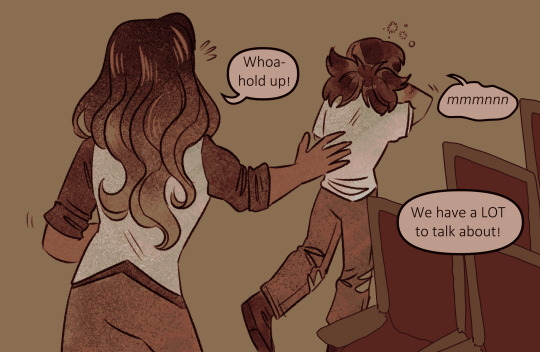
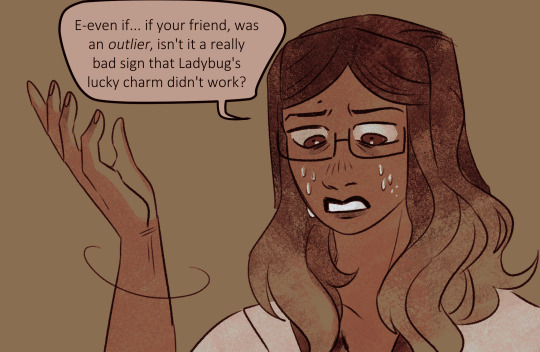
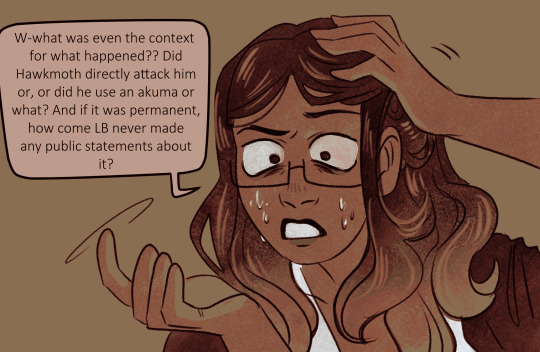
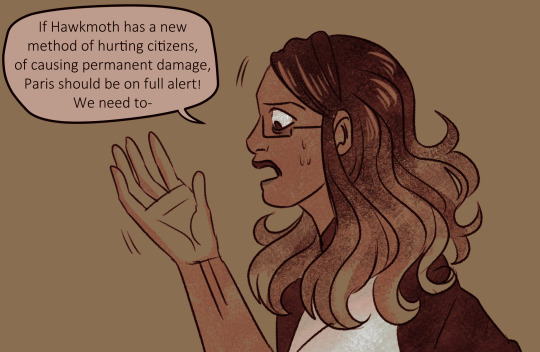
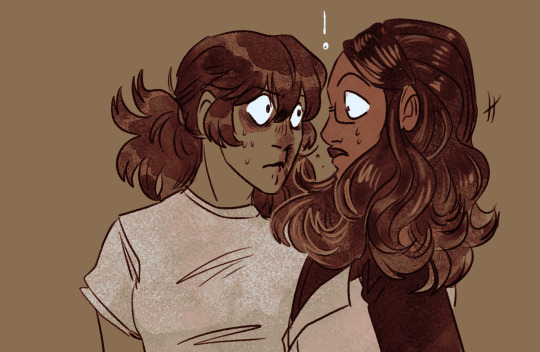
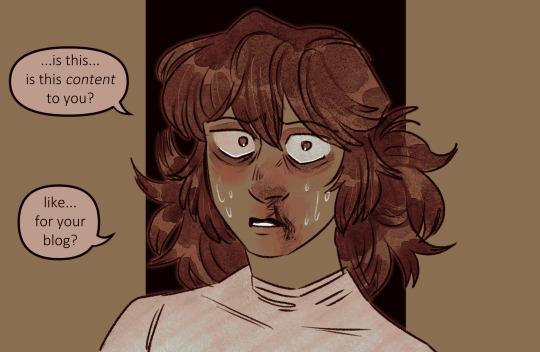
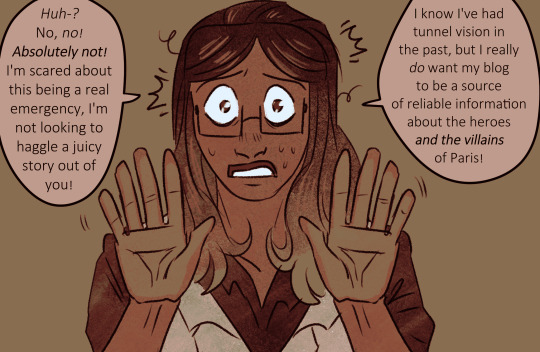
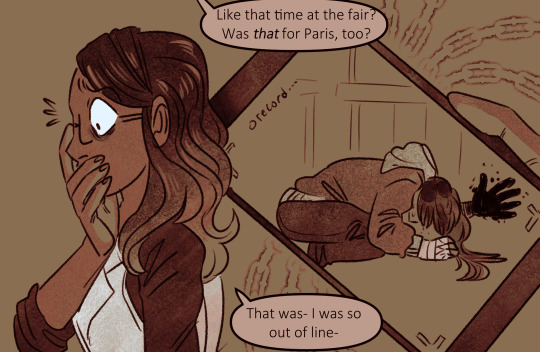
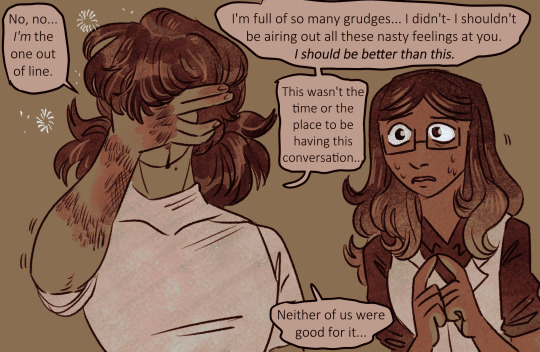
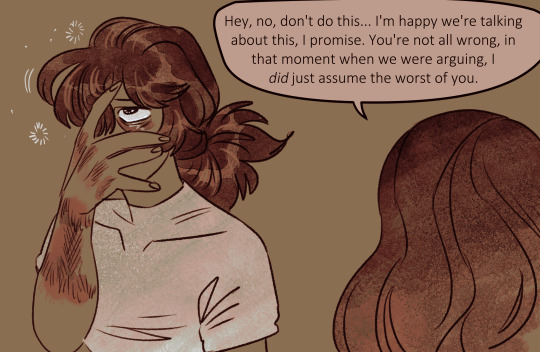
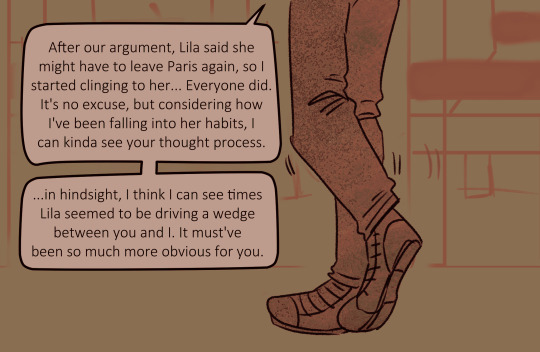
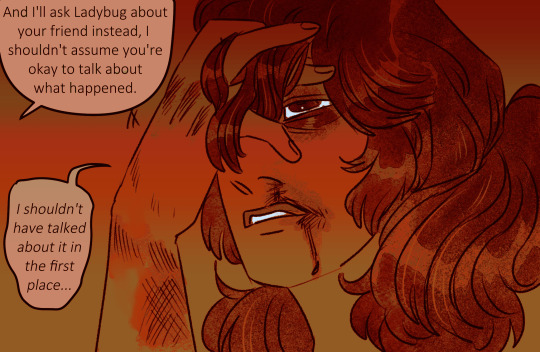
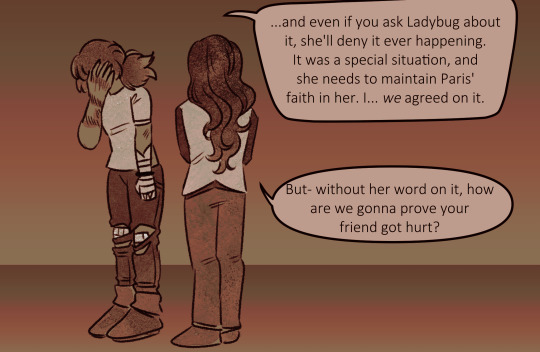
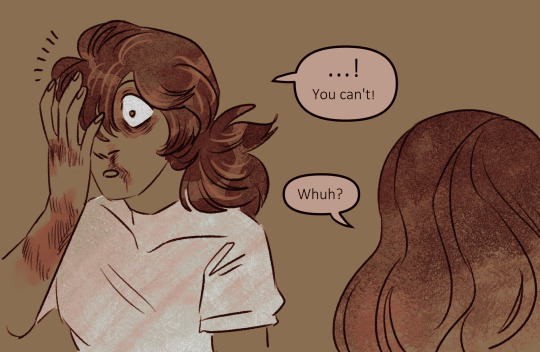
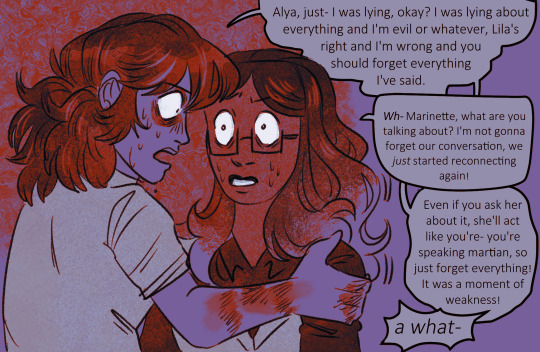
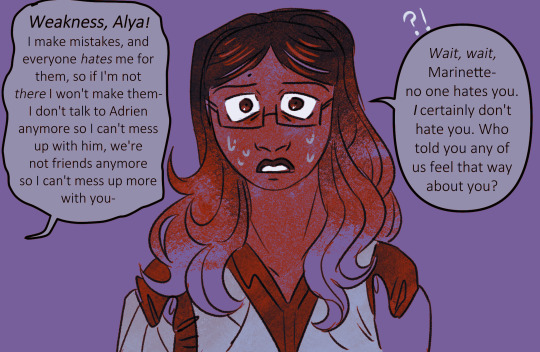
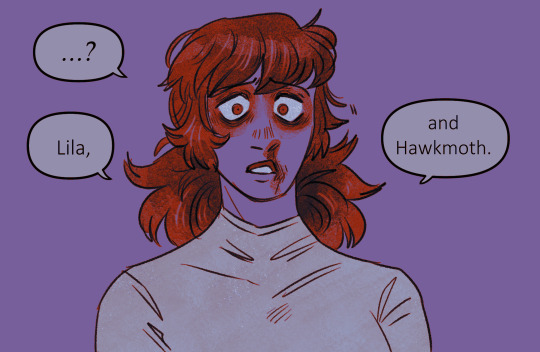
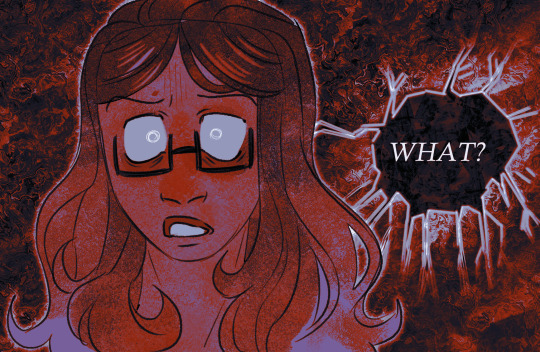
#feralnette au#my art#birds of a feather#eheheheoeooehooohoehehahahaa#ok ok i feel i should add. editing in some tags here#in fairness marinette doesnt 100% believe her nemesis' of COURSE#but when the situation is bad and the intrusive thoughts are bad. of course you think They Must've Been Right#so when she's under these situations of high stress and peril her brain automatically jumps to the worst conclusion:#which is of course. that the people who are her current greatest threats were right all along#and right now marinette is in great peril
3K notes
·
View notes
Text
friend wanted to see my tumblr, and when i told him i can’t show it to him bc it’s basically my personal diary he went “oh so I can’t see it but a bunch of strangers on tumblr can??” he literally does not get me. no one will get me like the people in my phone get me
#It’s just so different#even though it’s public it still feels secret and safe. i feel comfy sharing a lot more on here than I do in my actual day to day life lol#in my head I’m also just speaking to myself 90% of the time which helps#if a friend off tumblr saw my thoughts I’d feel so weird ab it#esp bc they might get the vagueposting about certain situations and tell mutual friends#no thank u. this is for me. I’m not about to start censoring my thoughts bc someone I know knows my tumblr#u guys literally saw me have LIVE BREAKDOWNS#meanwhile I’ll have the worst fucking day in history and tell no one about it. I’m already cripplingly private but way more so in real life#this is basically a low stress journaling outlet for me. it’s so important for me to maintain the separation#like this is actually my diary & has been so handy for letting out emotions / articulating thoughts / staying on track !!#& I’ve met so many kind people on here who actually get me. which is so hard to find irl bc I’m surrounded by pre-med gunners/overachievers#who are by standard not very good w emotion & can be competitive/judgmental. or at least it’s hard for me to be vulnerable in front of them#and I’m part of that crowd so I reserve my emotions only to a handful of very close friends#it’s nice to hop on here and express negative emotions!! or positive emotions!! just whatever I want and it’s low stress and people get me#I don’t have to worry about judgment or competitiveness etc etc#like everyone on here is so kind & nice & understanding. & just a breath of fresh air from the types I run w. it’s just nice to have this#so idk that’s why I think I’ll always be strict about keeping the worlds separate. it just works#p
7K notes
·
View notes
Text

I feel as if this is her general attitude for practically the whole first act
#possibly the most insufferable group of strangers to get stuck with when you have a parasite in your head#she is allowed to be stressed out and frustrated about it#honestly given the high stakes of the situation she is remarkably patient#have I said how much I adore lae’zel#baldur's gate 3#bg3#baldur's gate iii#lae'zel#lae’zel#my posts
3K notes
·
View notes
Note
TAKE A DEEP BREATH, I HOPE IT ALL WORKS OUT IN THE END. BEAT OF LUCK TOMORROW!!!
AHHHHHH I CANT OUR BAND TEACHER HAS NOT VEEN WORKING QITJ US WHAT THE FUCKK
1 note
·
View note
Text
I love Spock so much. I’m constantly thinking about “‘Vulcan’s do not lie,’ Spock lied,” and “one of my ancestors married a human” (his DAD he’s talking about his DAD marrying his MOM, king shit)
He never leaves my head I am rotating him like a rotisserie chicken in the microwave. I love him.
#I have a little figurine of him at my work desk and pretend he’s guiding me through stressful situations#He’s recently been joined by a little Nanami who frequently reminds me that I am not paid enough to be this stressed#at this point who needs therapy#whispers from the ally#spock#star trek
3K notes
·
View notes
Text
Stress is the real killer
There was a no person walking on this planet that didn’t experienced stress. Stress is something that can’t be avoided in this simultaneous world. There is so much going on in this world right now. In a smaller countries, I think, is less going on, but in those largest ones, I can’t even imagine, very overwhelming I believe.
Question for you: “How do you usually feel when you are stressed?”
I…
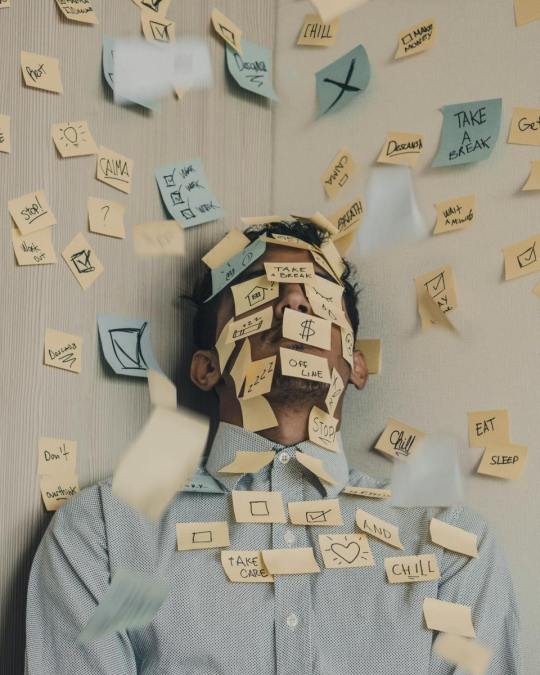
View On WordPress
#constant tension#how to be calm#stress#stress management#stressful#stressful situations#unease#what is stress
0 notes
Text
I think one underrated tragedy of Ice King's scars is that he probably took away Simon's sense of levity.
Like in his very limited appearances before Simon is consumed by the crown we see he's kind of a silly dude. In his introduction video, he only put on the crown in order to playfully tease his fiancee. Plus watching him make light of the loneliness and general misery for a young girl in a broken world. He was a dedicated man, who was generous and loved with his whole heart and threw himself one hundred percent into everything he did. He was also a fun lil guy.
But after almost a millennia of being a mad man, the brunt of every joke, someone who only existed as a broken caricature of himself and couldn't be counted on to take anything seriously, I imagine he was done with it. Now he wants to focus back on his academic endeavors, on his role as a father figure in Marcy's life, on being a proper adult. Any attempts to be silly could easily remind everyone - including himself- of Ice King, something he's eager to avoid.
So his jokes and jibes and general lightheartedness turned to sarcasm and self deprecating comments.
#watching him in simon & marcy compared to Fionna and cake#like he is handling the two stressful situations totally differently#fionna and cake#simon petrikov#adventure time#like this was a dedicated historian but hes also a fun guy!#and then he spends a thousand years as the worlds biggest punchline#and suddenly he doesnt WANT to be funny anymore#he wants to be serious and taken seriously#and to separate himself from IK as much as possible#he thinks of a silly joke and immediately quashes it#like its not just his obvious depression in F&C#it really feels like new Simon is trying very hard to not be that guy anymore#no wonder he feels lost hes purposefully divorcing himself from a part of who he'd been even before the crown#ive binged a ton of AT eps the last few days I could be wrong but thats the vibe I get
2K notes
·
View notes
Text
Stress Illness The Immune System &Its Effect On Human Health
Stress Illness The Immune System &Its Effect On Human Health
Hello my lovelies, I’ve been struggling with a bit of stress lately and spoke to Mr V about it and how he deals with it. He mainly tackles it head-on, keeping himself calm and logical. He thinks about what he says before saying it or the consequences of putting a plan into action. When things get too much he’ll go for a walk or he will tap away at the computer writing… I’ve also seen him do parts…
View On WordPress
#autoimmune health#Chronic health#chronic illness#Educational#Health#illness#lifestyle#Links#mental health#mindful thinking#mindfulness#positive mindset#positive vibes#psychiatric health#stress#stress and illness#stressful situations
1 note
·
View note